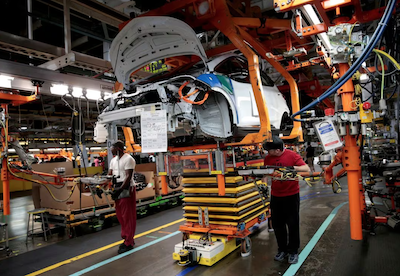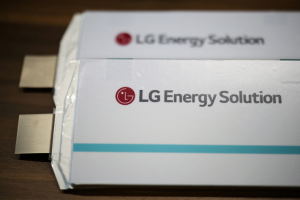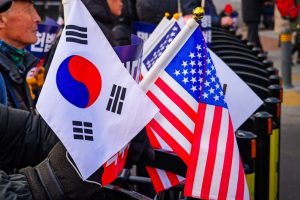The US has brought in strict new rules intended to ‘de-China’ its electric vehicle battery supply chain.
The Biden administration issued-long awaited guidance on Friday that will limit Chinese content in batteries eligible for electric vehicle tax credits starting next year.
In a win for automakers, the US Treasury will temporarily exempt some trace critical minerals from new strict rules barring materials from China and other countries deemed a “Foreign Entity of Concern” (FEOC).
The new rules, required under an August 2022 law, are designed to wean the US electric vehicle battery chain away from China and are being closely watched by automakers as they make investment decisions on producing batteries for their transition to electric vehicles.
The FEOC rules come into effect in 2024 for completed batteries and 2025 for critical minerals used to produce them.
Also on AF: Two Executives From China’s Zhongzhi Missing After Collapse
The Alliance for Automotive Innovation, a group representing nearly all major automakers, said the decision to exempt trace materials for two years “was significant and well-advised” and without it could have made nearly all vehicles ineligible.
The Treasury said the few materials being exempted each account for less than 2% of the value of battery critical minerals.
Ford Motor said in October it was awaiting the guidance to determine if its licensing agreement with Chinese battery maker CATL, as part of the automaker’s planned Michigan battery plant, would run foul of the rules.
The Energy Department said a company would be deemed a FEOC if it was owned or controlled by a named foreign government. Companies will also be ineligible if an entity of concern holds 25% of that entity’s board seats, voting rights, or equity.
Those countries include North Korea, China, Russia and Iran.
North America Exemptions
The automaker group said “it appears that companies operating in China are considered FEOC. Chinese entities with specific ownership or governance structures might be permitted in certain circumstances.”
The rules are expected to further reduce the number of electric vehicles eligible for EV tax credits.
The law immediately made any vehicle ineligible if not assembled in North America. Earlier this year, new battery and mineral sourcing requirements took effect with price and buyer income eligibility caps from January 1.
Senate Energy Committee chair Joe Manchin earlier this month urged the Treasury to adopt the “strictest possible standards.” Manchin noted China was responsible for 74% of the world’s cathode production, 92% of anode production, and 76% of lithium-ion battery cell production.
- Reuters with additional editing by Sean O’Meara
Read more:
China Investment Curbs May Not be Part of Key US Defence Bill
US Treasury Seen Limiting Chinese Role in EV Market – WSJ
SK Battery Firms Warn of Supply Chain Damage From US EV Rules
























